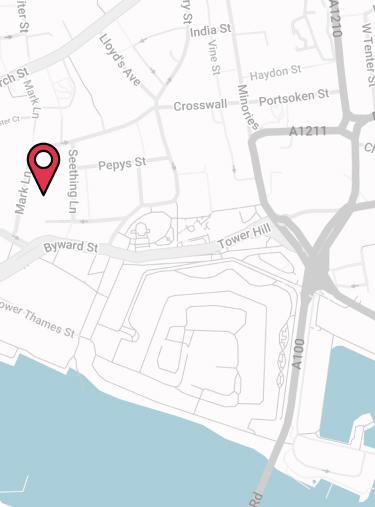
Business Life Insurance is something that all business owners should think about. It can provide your business or it employees with all important financial security if the worst were to happen.
In our years of experience, we’ve helped countless individuals and businesses put the right protection in place. An effective Life Insurance policy can help bereaved loved ones through a difficult time. Or it can help your business overcome the loss of a key person.
But what exactly is Business Life Insurance? What are the tax implications? And how do you know which type of protection is best for you? In this guide we’ll answer all your questions to help you make an informed decision.
What Is Business Life Insurance?
When we talk about Business Life Insurance, we’re talking about putting cover in place to protect the life of one or more of your employees. It’s designed to pay out a tax-free lump sum if the person you insure dies.
It’s important to note that under the umbrella of “Business Life Insurance”, you’ll find different products. Broadly speaking though, the different types of products will fit within two categories:
- Employee Life Insurance
This refers to policies that benefit an employees’ loved ones, with the claim amount being paid directly to them. - Business Protection
These policies see the benefit amount being paid directly into the business. This is to ensure it has enough funds to deal with the loss of a key member of staff.
The type of Business Life Insurance you choose will be down to your specific needs. Like many other companies, you might need to have multiple policies in place to protect both employees and your business.

The type of cover that’s right for you will depend on some key factors. For instance; the number of people you want to ensure, your budget, and the purpose of the policy.
Samantha Haffenden-Angear
Independent Protection Specialist
What Are The Different Types Of Business Life Insurance?
We can break Business Life Insurance down into 5 main types of protection. When we say types of protection, we essentially mean 5 different products to choose from. These are:
These products are all different, so to help you get to grips with what they are and how they differ, let’s look at each in more detail below.

Group Life Insurance
Group Life Insurance, otherwise known as Death in Service, is a policy that you can take out to protect the lives of your employees. Most companies offer this type of protection as part of their Employee Benefits package.
Rather than pay for a policy for just one employee, you have a group policy which covers many employees. Then if any of the insured employees were to pass away, the policy would pay out a multiple of their salary to their loved ones.
With some providers, you need a group of at least three people to qualify. But with other insurers, only groups of 10 or more are eligible to apply. This is why smaller businesses often opt for Relevant Life Insurance.

Relevant Life Insurance
If you’re a small business (e.g. 3 people) and don’t qualify for a group policy, you can instead opt for Relevant Life Insurance. Rather than have a group policy which covers multiple people, you would have 3 policies, one for each person.
Just like a group policy though, if one of the insured individuals were to pass away, the policy would pay out a benefit amount to their loved ones.
A few things to highlight about Relevant Life Insurance include:
- It can be suitable for directors, contractors, and employees of small businesses without access to a Death in Service scheme
- Your company owns and pays for the life policy, which can save company directors 50% on premiums when compared to a personal plan
- It’s placed into a Relevant Life Trust, ensuring any pay out is quick, direct and tax-free
- You can’t add Critical Illness to a Relevant Life policy.
A Relevant Life Plan is a popular option for many directors who work for their own limited companies. There must be a company structure to own and pay for the policy, so it’s not generally suitable for sole traders.
Relevant Life Cover can be Level or Increasing. Increasing cover can be suitable if you don’t want the value of a potential claim to be eroded by inflation.

Key Person Insurance
When you think about your company, who are the people that are vital to the success of your business? It might be your CEO and founder, top salesperson, or coding genius. Whatever their role, if they’re fundamental to the success of your business they are key!
If they are key, they should be protected with Key Person Insurance, otherwise known as Keyman Insurance. It’s designed to help safeguard your business against any financial loss you may face in the event of losing such a person.
Unlike Group Life or Relevant Life, it’s a kind of Business Protection. Rather than the benefit amount being paid to the insured person’s loved ones, it gets paid directly to the business. You can take out Key Person Protection as:
- Level Life Insurance
Meaning the sum insured will remain the same throughout the policy term. So regardless of when a claim is made, the benefit amount will be the same. - Decreasing Life Insurance
This is where the sum insured goes down over the term. You might choose this option if the potential cost of losing the key person is reducing. For instance, if you have a business continuity plan, or are in the process of training others in their speciality.

Shareholder Protection
It’s easy to overlook Shareholder Protection in favour of other kinds of cover. Despite it being quite niche, it’s a very effective kind of policy. So, how does it work?
- Shareholder Protection is a form of both Life Insurance and Business Protection Insurance
- It insures a share owner’s life for the value of their shares
- If the equity partner dies, ownership of their shares passes to their estate
- The protection policy claim is paid out to your business, allowing you to purchase the shares
- By doing so, you retain ownership of your organisation.
This kind of Business Life Insurance policy benefits company owners and ensures the future of your business. In a roundabout way, it also benefits the deceased’s next of kin, as they’re able to realise the value of the shares.
Generally, you’ll take out Level Term Life Insurance, meaning the sum insured will remain the same throughout the policy term. You can also add Critical Illness Cover for an extra cost.

Business Loan Protection
Compared to Shareholder Protection, Business Loan Protection is a lot more straightforward. Quite simply: you take out a Life Insurance policy equal to the value of your business loan/s. If the person responsible for repaying the loan passes away, the claim payout repays the lender.
You can take out Business Loan Protection to cover any outstanding debt you might hold. For example:
- Business loans
- Venture capital loans
- Directors loans
- Company overdrafts
- Commercial mortgages
- Personal guarantees.
It’s not just suitable for directors, either. If you’re reliant on a lead salesperson to generate the revenue to repay a loan, you can take out the protection on their life, too. And again, you can include Critical Illness cover for an extra cost if you prefer.
The protection can work as Level or Decreasing Business Loan Insurance. It wholly depends on what outstanding business loans you have. For instance, you might be repaying the interest only, or repaying the principal loan.
While Business Loan Protection isn’t a legal requirement, many lenders require you to take out a policy when your loan is agreed. This gives them the assurance that you’ll be able to repay what you owe.
Business Protection Client Stories
Who Is Business Life Insurance Suitable For?
By this point, you should have an understanding of the different types of Business Life Insurance available. You’ll also be able to see that each product is designed for different circumstances.
So whether or not this type of protection is suitable for your business and employees will depend on your specific needs. To help you get some more clarity, we’ve outlined some examples below.
Business Life Insurance For Business Owners
If you’re a business owner, you could be in a position to take out any of the Business Life Insurance products we’ve talked about so far. The suitability of each kind of protection will depend on your particular organisation.
Micro Businesses With Fewer Than Three Employees
If you own a small business with fewer than three employees, you’re unlikely to qualify for most group schemes. In this instance, your best bet is to look at a Relevant Life Plan. It’s a tax efficient and cost effective way for directors to have life protection.
Relevant Life Insurance provides the same kind of cover as group schemes, and has the same level of tax efficiency. The only difference is that it’s taken out on an individual person rather than a group.
Relevant Life Protection protects your staff but not your business, so you also need to think about business protection. Depending on how your team is structured, you might also consider:
Small and micro businesses undergoing growth may not have the same cash flow as a larger organisation. So, if a vital member of the team passed away suddenly, it could do some serious financial damage. As a result, having the right business protection can determine whether the lights stay on.
Companies With Three Or More Employees
If you’re a business owner with at least three members of staff, you could be eligible for group schemes. These cover all employees under the same policy with the business paying the premiums.
With a traditional Group Life Insurance policy, the level of cover is set at a multiple of the employee’s salary. Generally, four times each employee’s salary is fairly competitive. The protection is designed to stay in place until they reach state pension age.
Of course, there’s also nothing stopping you from taking out Relevant Life Insurance as well as a group scheme. And again, it’s important to think about your business continuity if someone vital passed away. So, you should still consider Key Person Protection, Shareholder Protection and Business Loan Protection.
Business Life Insurance For Limited Liability Partnerships
It’s not just limited companies who can take out Business Life Insurance. If you’re a partner in a limited liability partnership (LLP), you can also take out partnership protection through your business.
Of course, limited companies have shareholders, but limited liability partnerships don’t. As such, partners who work in an LLP can rule out Shareholder Protection.
You may still have a business need for Keyman Insurance or Business Loan Protection. It’s important to have a plan in place in the event you lose a vital member of the team.
For the benefit of your other partners and members of staff, you can also still consider Relevant Life Insurance. And, depending on the size of your team, you could also qualify for Group Life Insurance.
Business Life Insurance For Sole Traders
Without the structure of a business, it’s difficult for a sole trader to take out any form of Business Protection. You’ll probably have Public Liability Insurance and/or Public Indemnity Insurance already. But when it comes to Life Protection, most sole traders need to take out a Personal Life Insurance policy.
With any personal protection policy, you own the plan and pay for the premiums out of your post-tax income. In the event that you pass away, your loved ones will receive the payout. Personal Life Protection can come in several different forms:
- Level Life Insurance
- Decreasing Life Insurance
- Increasing (Index-Linked) Life Insurance
- Family Income Benefit
- Whole-of-Life Cover.
You can also use a personal trust to ensure any benefit goes directly to your next-of-kin.

Just because you don’t have the structure of a business to pay for your policy, it doesn’t mean you need to miss out. With our knowledge, we can find the most suitable cover for you at the best price possible.
You can chat to a member of our friendly team on 02084327333 or by emailing help@drewberry.co.uk.
Alex Weir
Independent Protection Specialist
Does My Company Need Business Life Insurance?
Business Life Insurance isn’t a mandatory benefit that you have to offer. However, as we will show you below, no one is invincible and unfortunately, the risk of someone passing away is often underestimated.
With this in mind, Business Life Insurance is a good idea for any business. Not only can it protect your business and employees, but it could also boost engagement (more on that below).
What’s The Risk Of Passing Away?
Broadly speaking, the risk of passing away is the same whether you’re looking to provide cover for employees’ loved ones, or for the business. But the main point is there is a risk.
We’ve used Life Expectancy data from the Office of National Statistics (ONS) to calculate the risk of death. The table below shows the risk of a healthy male of various ages dying within the next 10 years:
Risk of Death in 10 Years | Age | Risk |
|---|---|
30 Years Old | 1 in 112 |
40 Years Old | 1 in 53 |
50 Years Old | 1 in 23 |
We used the same ONS data to build our own Life Expectancy Calculator. While we appreciate it can be a bit unsettling, it’s useful to understand the risks of passing away and the importance of protecting your staff and business.
Life Insurance As Business Protection
Without having large sums of money tucked away, the financial impact of losing a key member of staff can be devastating. To put this in perspective, according to Legal & General, 70% of companies would stop trading within two years of losing a key person.
That’s a staggering amount. Yet despite this, many business owners either don’t see the need for Business Protection Insurance, or they overestimate the costs. This leaves many vulnerable should the worst happen.
So to avoid being a part of that 70%, if you’re a business that has shareholders, key individuals or business loans, you should consider a form of Business Life Insurance.

In some cases, lenders or venture capital firms might require you to take out a form of Business Life protection.
Even where there’s no such requirement, it’s important to understand how hard it is for businesses to stay afloat after losing a vital member of the team.
Bradley Fedarb
Independent Protection Specialist
Business Life Insurance For Employees
If you’re looking to enhance your benefits package, Business Life Insurance for employees is a fantastic option. It’s simple, easy to understand and relatively cheap.
It’s also highly sought after by employees. Our recent survey found that Life Insurance was one of the top employee benefits workers wanted to receive. Providing a benefit your team actually wants comes with a host of benefits in itself. Including:
- Retaining and attracting top talent
- Increasing engagement levels
- Improving productivity and morale.
So it’s not all doom and gloom. By providing Life Insurance, you can make your workforce feel listened to and valued. This in turn can have a positive impact on overall business performance. It’s a win win situation!
What About Protection For Directors?
Company directors often opt for Relevant Life Insurance to protect their loved ones in a highly tax efficient way. This is particularly the case where they’re the sole employee contracted through their own limited company. By doing so, directors can save around 50% on premiums compared to personal cover.

As well as paying out on death, Life Protection policies also pay out early if you’re diagnosed with a terminal illness. This is generally defined as an incurable condition with a life expectancy of 12 months or less.
Terminal illness cover adds another layer of protection for a worst case scenario.
Rauri Taylor
Independent Protection Specialist
How Much Does Business Life Insurance Cost?
The cost you’ll pay for Business Life Insurance will depend on the product you opt for. For example, the cost of Group Life Insurance will cost more than if you are looking to insure just one individual with a Relevant Life or Keyman policy.
To give you an idea, we’ve provided some examples based on different business needs.
Cost Of Group Life Insurance
Like any employee benefit, the cost of Group Life Insurance is based on the extent of cover you want to provide and your staff demographic. Factors that will determine how much you pay include:
- Employee Age
- Employees’ Salaries
- Your Industry
- Number Of Workers
- Location.
Example
Below is an example of two different sized firms who have taken out cover for their entire workforce. The monthly premiums are based on:
- An average employee age of 35
- Average salary of £40,000
- An equal split of male and female employees.
Group Life Insurance | Software Company | Health Service Company |
|---|---|---|
Location | London | Barnsley |
Employees | 10 | 200 |
Cease Age | State Pension Age | State Pension Age |
Level of Cover | 4 x Annual Salary | 2 x Annual Salary |
Monthly Cost | £162.80 | £956.00 |
Per Employee | £16.28 | £9.56 |
As you can see, the total monthly premium is understandably higher for the bigger group. But, the cost is actually lower per employee, per month.
It’s also good to know that, unless the level of benefit exceeds the scheme free cover limit, the vast majority of employees won’t need to go through medical underwriting.
This means those who smoke or who have pre-existing health conditions aren’t generally pricier to insure. It is also a great perk for individuals who wouldn’t otherwise be able to get a personal policy.

Although providers will insure employees who have pre-existing conditions it’s important to note that if they’re on long-term sick leave when you apply, the insurer will likely decline to cover them until they return to work.
Nick Nelms
Senior Consultant, Employee Benefits
How Much Does It Cost To Cover A Single Employee?
Relevant Life Insurance offers significant tax savings of up to 50% compared to personal Life Insurance. This is because the policy is owned and paid for by the business. Premiums are typically an allowable business expense against corporation tax. On top of that, your company also saves on National Insurance contributions.
Unlike a group scheme, however, the individual will need to be underwritten for their cover. This means their premiums are based on their age, health status and medical history. Their occupation will also be considered as a risk factor, which could impact the cost.
Example
To give you an idea of the cost of a Relevant Life Plan, we’ve provided an example below. The figures show costs at various ages, and are otherwise based on:
- The individual is a healthy non-smoker
- They’re an architect
- They want £250,000 of level life cover paid for by the business over a period of 25 years.
Relevant Life Insurance | Age | Monthly Premium |
|---|---|
25 | £5.04 |
35 | £11.78 |
45 | £29.99 |
Understandably, the cost of cover only gets higher as we grow older as the risk of us passing away becomes greater. We therefore would always recommend taking out cover as soon as you need it rather than waiting.
How Much Is Life Insurance For Business Protection?
The premiums for Business Protection Life Insurance depend largely on the cover amount. Whether you need Key Person Insurance, Shareholder Protection, or Business Loan Protection, the cost is reached in the same way.
As with all protection for individuals, each person will need to be medically underwritten. This will establish a number of factors which will influence the cost, such as your:
- Age
- Health and medical conditions
- Lifestyle (e.g. smoking and drinking habits)
- Job (riskier occupations tend to cost more to insure).
The below table details the monthly cost of Business Life Insurance with and without Critical Illness Cover. These figures are based on a healthy non-smoking individual aged 35, 45 and 55.
They’re looking for £150,000 of level cover (i.e. cover that will remain fixed throughout the policy term).
Age | 5 Year Term | 10 Year Term | 15 Year Term | Life Only |
|---|---|---|---|
Age 35 | £5.42 | £6.02 | £7.51 |
Age 45 | £9.81 | £12.63 | £17.55 |
Age 55 | £22.17 | £27.62 | £33.80 | Life & Critical Illness |
Age 35 | £37.66 | £42.58 | £47.50 |
Age 45 | £76.90 | £86.50 | £96.87 |
Age 55 | £169.56 | £187.57 | £215.57 |
As you can see, the costs increase substantially as we grow older. The risk of us passing away, or developing a critical illness increases over time. This is of course reflected in the example costs.
It’s always more cost effective to take out a protection policy when you’re young and healthy. Those who are older or have serious health conditions will unfortunately pay more.
To compare quotes for your own business protection needs, you can use our handy online tool. You’ll be able to compare initial quotes and apply online for all the top providers such as Aviva, Legal & General and more.
How Does HMRC Treat Business Life Insurance?
When it comes to any Business Life Insurance policy, it’s not just the costs you need to know, but the tax implications, too.
How you are taxed will depend on the type of cover you take out. For example, Keyman Insurance would be taxed differently to how Shareholder Protection would be.
If your company takes out a policy and pays for it, premiums are usually seen as a tax deductible business expense. HMRC classifies this by assessing whether a benefit is ‘wholly and exclusively‘ for the benefit of the company.
When Are Policy Payouts Taxed?
There are only some instances where the policy payout might be taxed. Many forms of Business Life Protection use trusts, which result in no tax being paid on a claim.
Writing your policy into a trust ensures that the person named as a beneficiary receives the payout quickly. This saves them from going through a lengthy probate process.
For example, with Relevant Life Insurance, you write the plan into a Relevant Life Trust. If you die, the claim is then handled quickly and paid directly to your nominated person.
Need More Help Understanding How Different Business Life Is Taxed?
To help give you more detail around how each type of Business Life Insurance is taxed, we’ve put together the following guides:
- How Is Group Life Insurance Taxed?
- How Is Relevant Life Taxed?
- Guide To How Keyman Insurance Is Taxed
- How Does HMRC Tax Shareholder Protection?
- How Is Business Loan Insurance Taxed
IMPORTANT NOTICE 🧐
Before applying, you should check with your accountant and your local inspectorate of taxes. In order to meet HMRC’s requirements, it must not be seen to be primarily for tax-avoidance.
Frequently Asked Questions
What Are The Benefits Of Business Life Protection?
Business Life Protection comes with advantages for both your company and your staff. In fact, there are a few key benefits you should be aware of:
- Attract & Retain Top Talent
Offering Life Insurance as an Employee Benefit is a great way to show you value your staff and keep top performers on your team. It makes you a more competitive employer with a stronger reputation. - Help Staff Qualify For Protection
Providing a group scheme gives employees access to Life Protection which they may not otherwise have. This could be due to their health status or financial circumstances. It provides them with much-needed support and helps them feel valued. - Tax Savings
Your company can benefit from significant tax savings with Business Life Protection. These savings come in the form of national insurance and corporation tax relief. - Protect Business Continuity
Taking out Life Insurance as a form of Business Protection is an important way to safeguard your company if the worst should happen. It protects your professional legacy and gives your financial dependents a stronger future.
- Attract & Retain Top Talent
How Do I Choose The Right Type Of Business Life Insurance?
We hope this guide has proved useful when it comes to understanding the different types of Business Life Insurance. It’s important to make an informed decision once you’re in-the-know. However, if you feel unsure about what type of protection would be best for you, your best bet is to seek professional financial advice. Our specialist consultants are familiar with all aspects of Life and Business Protection, and can fill in any gaps you may have. Drop us a line on 02084327333 or help@drewberry.co.uk and we’ll be happy to help.
Can I Pay For Business Life Insurance Through My Company?
Yes, you can pay for personal Life Insurance through the business. Relevant Life Insurance does just that, and it’s an HMRC-approved protection product. It’s an incredibly tax-efficient way to secure a death benefit as you save on income tax, National Insurance and corporation tax relief. In addition, the lump sum payout goes into a specially-drafted trust. This means there’s no inheritance tax to pay on the benefit either. The same is generally true of Group Life Insurance.
Keyman Insurance and Business Loan Protection are also paid for by your company in most instances. However, with Shareholder Protection, sometimes an individual will pay the policy premiums.
Is Business Life Insurance Tax-Deductible?
In the majority of cases, yes. Typically, you’ll receive tax relief on Key Person Protection, Relevant Life Insurance and Group Life Insurance. This is because HMRC views them as being an allowable business cost.
But, Business Loan Protection benefits your lenders. And Shareholder Protection benefits the surviving business owners if a shareholder passes away. As such, HMRC doesn’t view these as being ‘wholly and exclusively’ for the business. This means the premiums are usually not eligible for tax relief, even though the company may pay for the cover.
Are Payouts From Business Life Insurance Made To The Company?
In the case of Key Person Insurance and Shareholder Protection, yes. If you lose a vital member of your team, your business will receive the payout. The funds are an important form of financial support to keep things running smoothly.
With Business Loan Protection, the payout generally goes directly to the lender.
For Relevant Life Insurance and Group Life Insurance, the payouts don’t benefit the company at all. Instead, the funds go to the employee’s loved ones as a death in service benefit.
Can I Take Out Business Life Insurance As A Freelancer?
It depends on what capacity you’re acting as a freelancer. Not all freelancers are sole traders, but if you are self-employed as a sole trader, you’ll only be able to take out Personal Life Insurance. Freelancers who have decided to operate as a limited company can take out Business Life Insurance through their own company. This could be in the form of Relevant Life Insurance if you want your loved ones to receive the benefit. It could also be a Keyman Insurance policy if you want the funds to be paid to your business.
Compare Business Life Insurance Quotes & Get Specialist Advice
As you can see, there are a number of policies to choose from, each with a very different purpose. Whether you’re looking to provide Group Life Insurance as an employee benefit, Relevant Life Cover or Business Protection, there’s a lot to consider.
With so many options available, it can be an overwhelming task trying to figure out which one is best for you and your business. In our experience, it’s always worth speaking to a specialist to ensure you get the right policy, and that it’s set up correctly.
Why Speak to Us?
When it comes to protecting yourself and your finances, you deserve first-class service. Here’s why you should talk to us:
- There’s no fee for our service
- We’re an award-winning independent insurance broker, working with the leading UK insurers
- You’ll speak to a dedicated specialist from start to finish
- 4090 and growing independent client reviews rating us at 4.92 / 5
- Claims support when you need it most
- We’re authorised and regulated by the Financial Conduct Authority. Find us on the financial services register.
If you need any help ensuring you’re looking at the most suitable cover for your protection needs, please don’t hesitate to get in touch. You can drop us a call on 02084327333 or pop us an email to help@drewberry.co.uk.
Contact Us
125-135 Preston Road
Brighton
BN1 6AF
Cookies
Drewberry™ uses cookies to offer you the best experience online. By continuing to use our website you agree to the use of cookies including for ad personalization.
If you would like to know more about cookies and how to manage them please view our privacy & cookie policy.











